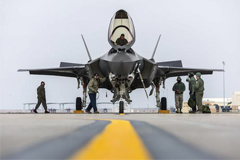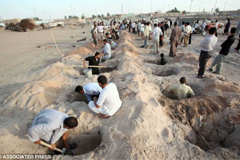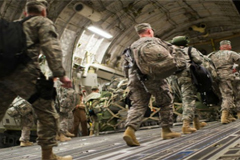News + Media
 |
AuditApril 1, 2005Why US national security requires mideast peaceStephen Van Evera, MITTwo myths have important, distorting effects on the Bush administration's policy toward the Israeli-Palestinian conflict. First is the optimistic belief that the Israeli-Palestinian conflict is only a minor obstacle to American foreign policy—a modest hindrance that will not prevent the United States from achieving its main foreign policy goals. Second is the pessimistic belief that a final settlement between Israel and the Palestinians is infeasible, so a forceful U.S. push for peace will only waste effort on a fool’s errand. |
 |
AuditApril 1, 2005Raising the salience of Mexico and CanadaChappell Lawson, MITCanada and Mexico rarely figure high on the list of American priorities. Policymakers focus on conflicts in the Middle East; specialists in international relations discuss China’s growing influence; and newspapers cover the international crisis du jour. It is easy to forget about two countries that appear to pose no direct or immediate threat to U.S. interests. |
 |
AuditApril 1, 2005US military power: strong enough to deter all challenges?Barry R. Posen, MITHow strong is the U.S. militarily? Recent history would suggest very strong indeed—the U.S. armed forces are undefeated in two stand-up fights with Saddam Hussein, and one each with Slobodan Milosevic and the Taliban. The Grand Strategy of the Bush administration seeks to improve this already impressive position. |
 |
AuditApril 1, 2005The United States as an Asian power: realism or conceit?M. Taylor Fravel and Richard J. Samuels, MITThe long history of U.S. foreign policy is punctuated by axiomatic truths that have bordered on conceit—e.g., the virtues of isolation, America’s manifest destiny, and our benign, democratizing presence in world affairs. Strategists have lurched from truth to truth across the centuries, often without sufficient reflection and learning. Today the United States is operating with an axiomatic idea about its place in and of Asia. |
 |
AuditApril 1, 2005Introducing a seriesPolitics and public policy, like every walk of life, are fraught with “conventional wisdom”—the folk axioms, bromides, platitudes, and generally superficial explanations that, once entrenched, go unchallenged. Academics, journalists, activists, business leaders and just about everyone else in the chattering classes—right, left, and center—are guilty parties. All of us use conventional wisdom as a shortcut—as a handy way to “know” something about which we have not invested the time and trouble to study closely and understand fully |
 |
Analysis + OpinionJanuary 31, 2005A focus on facts ought to dispel mistrust of US MuslimsJohn TirmanChristian Science MonitorOne of the mysteries surrounding the 9/11 attacks and the frequent terrorist alerts ever since is the role played, if any, by American Muslims in supporting Al Qaeda operations. But the cardinal question of whether domestic Muslim populations actually pose a security threat remains unanswered - indeed, unarticulated - in public discourse and official pronouncements. |
 |
Analysis + OpinionJanuary 11, 2005Making the cuts, keeping the benefitsCindy WilliamsNew York TimesIn an effort to reduce the growth of the military budget, the Bush administration is poised to cut back a wide array of Pentagon programs, from jet fighters to a missile defense system. Pentagon leaders say the cuts will save more than $55 billion over six years. Whether these reductions herald the end of the rapid rise in military spending that began in 1999, however, is open to question. |
 |
Analysis + OpinionOctober 29, 2004100,000 dead in IraqJohn TirmanAlterNetA new study by researchers at Johns Hopkins University does what the Bush-Cheney administration refuses to do: Estimate the number of Iraqis killed in the last 18 months. |
 |
Analysis + OpinionOctober 5, 2004Draft lessons from EuropeCindy WilliamsWashington PostAlthough President Bush said during Thursday's debate that he would keep the all-volunteer system for bringing people into the military, the Internet continues to buzz with rumors of an imminent reinstatement of the draft. It is a subject thought to be worthy of serious discussion. |
 |
Analysis + OpinionSeptember 15, 2004Forget the draft: fix the volunteer force and they will comeCindy WilliamsGovernment Executive MagazineFor the first time since ending the draft in 1973, the United States is putting its all-volunteer military to the test. For the most part, the force is meeting the challenge for operations worldwide, but there are signs of strain. |

